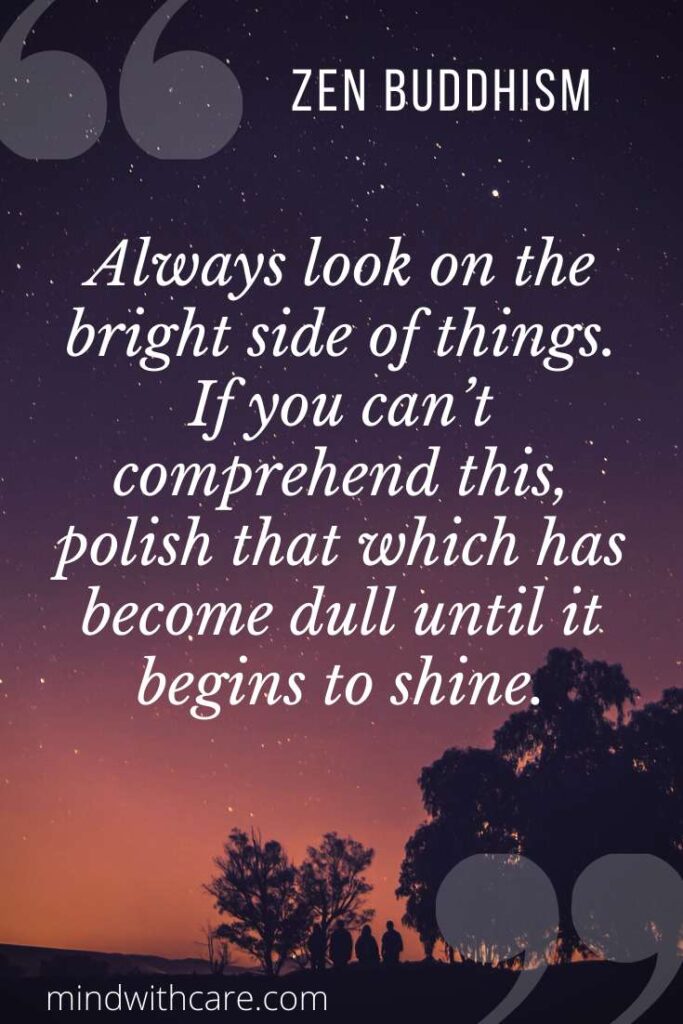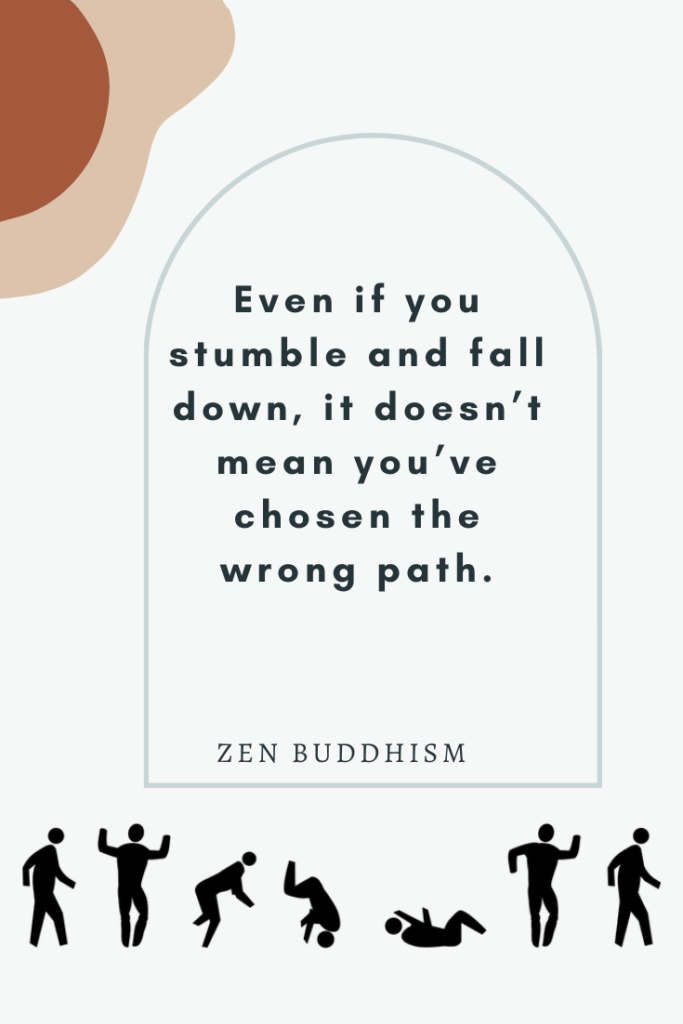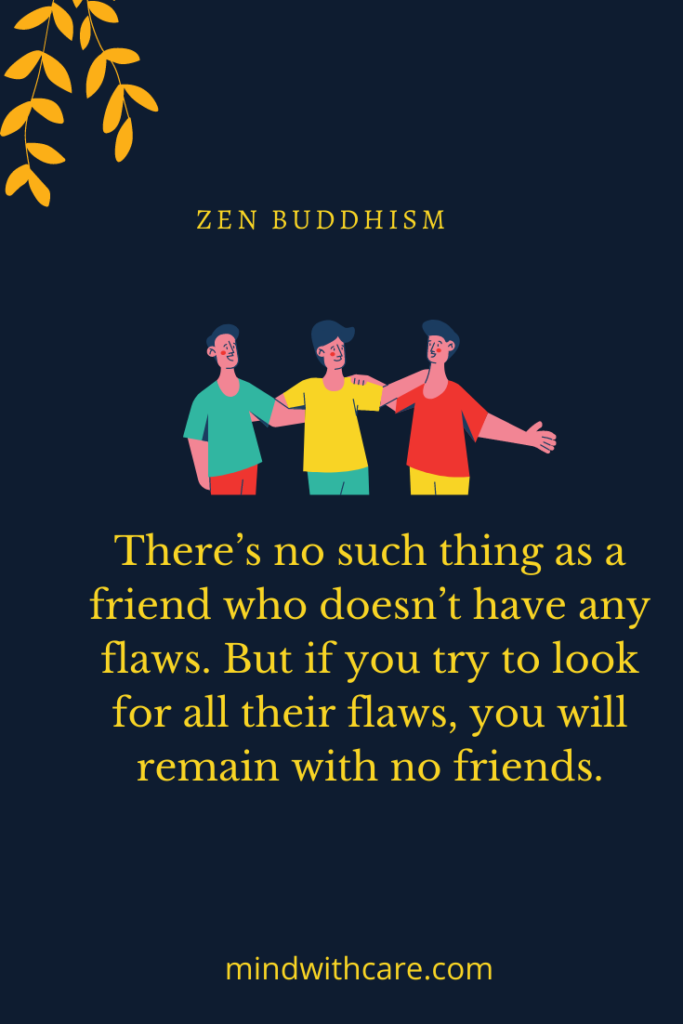The word “Zen” was originally the Japanese pronunciation for the Chinese word “Ch’an,” which in itself was a transliteration of the Sanskrit word “Dhyana” which means concentration or meditation. In the eighth century, this philosophical doctrine of cut to down, living in the present with no interest in doctrines of meditation-based Buddhism had reached the Japanese shores. Since then, its popularity began to gain for its effectiveness in the life of many people. Its compatibility with other faiths in terms of techniques has made “Zen Buddhism a popular choice among western nations.

Table of Contents
Origination Of Zen Buddhism

It originated from China as a result of the amalgamation of popular beliefs at that time in China which are Buddhism, Confucianism, and Taoism. Zen Buddhism consists of all the elements of these popular beliefs. However, it should be fair enough to say that Mahayana Buddhism was not that popular among the people of China with the Confucianism and Taoism being the more predominant religions back in the fifth-sixth century in China.
Unfortunately, due to the abrupt crisis of civil war ( Lushun rebellion) in the seventh century which according to the history of China was one of the worst disasters claimed to had eliminated two-thirds of the Chinese population back then. With their own countrymen involved in daylight debauchery of killing and vandalizing each other, the common people of China had no time for obscure theorization and difficult rituals.
On top of that, the vanishing glories of the Tang empire added fuel to the already ridden misery of the people. This was how, the new confluence of beliefs, ie, “The Ch’an,” which includes an emphasis on simplicity and the teachings of no duality and non-conceptual understanding prevailed in China which gradually spread down to Japan, Korea, Vietnam, etc.
What is Zen Buddhism?
Zen Buddhism is the type of Buddhism which emphasizes strongly upon meditation. Ever since the flourishing of Zen Buddhism in many countries over the world, the question often remains regarding its identity. Many refer it to as a form of Buddhism, however, in Zen, there is no mention of any gods, sins, and the creation of the mortal world. Unlike the usual philosophies of Buddha, Zen Buddhism never talked about Karma, the afterlife which usually has been the predominant subject in the Buddhism world. So Is Zen Buddhism a philosophy?
Well, they neither claim this as a philosophy too. Because according to them, a philosopher is a part of the problem of life, not the solution. Every perception of an individual has its own biased approach in letting his opinions be accepted which is a real sense can never be real.
Hence according to Zen Buddhism, we have to let go of our thoughts through meditation which will open us to the non-conceptual and direct way of understanding the world. Zen training provokes us into understanding and experience that is precious and rare, ie enlightenment. It helps us in making us realize that there is no ego-self. The goal of Zen is not to realize the reality, but to realize the true nature of this reality undistorted by projection and concepts about it.

“Zen in its essence is the art of seeing into the nature of one’s own being, and it points the way from bondage to freedom. By making us drink right from the fountain of life, it liberates us from all the yokes under which we finite beings are usually suffering in this world.”
“This body of ours is something like an electric battery in which a mysterious power latently lies. When this power is not properly brought into operation, it either grows mouldy and withers away or is warped and expresses itself abnormally. It is the object of Zen, therefore, to save us from going crazy or being crippled. This is what I mean by freedom, giving free play to all the creative and benevolent impulses inherently lying in our hearts.”
“Generally, we are blind to this fact, that we are in possession of all the necessary faculties that will make us happy and loving towards one another. All the struggles that we see around us come from this ignorance… When the cloud of ignorance disappears… we see for the first time into the nature of our own being.”
DT Suzuki
True Nature Of Zen Buddhism
The point of the study of Zen Buddhism is not to master the philosophy of Buddhism, but to realize your true nature of who you really are? In order for you to realize who you really are, you must forget who you are? Usually, the perception about the experiences we have has been dualistic as we normally have a clear demarcation of self me and the other side. As a result of it, we take for granted the feeling of separation between myself and the outside world. This feeling of separation is not a permanent reality from the perspective of Zen as it might also be an illusion in front of you.
Our life has been conditioned on the basis of many experiences we had over the years that we had been conditioned into accepting a truth which the most accepts. The importance of money, status, recognition, material possession are not enough to make us happy according to Zen. Because our preoccupation with them are the symptoms of deeper problems. By immersing yourself wholeheartedly in the meditation, you must let go of yourself.
A Story Of A Zen Buddhism
There in Japan, Zen master Mu nan had only one successor and his name was Shoju. After Shoju had completed his studies from his master, Zen master Mu nan called his student Shoju to his room and said “I am getting old and as far as I know, you are the only one who will carry on this teaching for the benefit of mankind. Here is the precious book which has been passed down from master to master for seven generations. Since this book is very valuable and precious, I am handing this over to you to represent your successorship”.
Confused and dazed, Shoju replied to his master, “If the book is that important, Why you are giving it to me? I have received your Zen without writing and I am totally contented with what I had acquired. “I know that,” said Zen master Mu nan. “Even so, this tradition of passing on the precious book has been carried on for seven generations. So you may keep this with you as a symbol of having received the teaching. Here..”.
The two happen to be talking near an open fire. The very instant Shoju felt the book in his hand, he threw the book into the flaming fire. Zen master Mu nan who had never been angry before yelled “What are you doing?”. Shoju shouted back “What are you saying?”.
By criticizing his own master, Shoju was right in letting his master be aware of the true state of Zen which was to be in the state of the present where worldly possessions don’t make much of a difference in your state of mind.
Zen Buddhism Quotes
- The temptation to give up is strongest just before the victory.
- The goal in life is to die young but to do it as late as possible.
- Don’t speak if it doesn’t improve on silence.
- A thousand-mile journey begins with just one step.
- A strong man overcomes an obstacle, a wise man goes the whole way.
- Don’t be afraid to go slowly. Be afraid of stopping.
- Even the happiness of a fool is a stupid kind of happiness.
- Even if you stumble and fall down, it doesn’t mean you’ve chosen the wrong path.
- A hut full of laughter is richer than a palace full of sadness.
- Always look on the bright side of things. If you can’t comprehend this, polish that which has become dull until it begins to shine.
- Whatever happens always happens on time.
- Someone who points out your flaws to you is not necessarily your enemy. Someone who speaks of your virtues is not necessarily your friend.
- Don’t be afraid that you do not know something. Be afraid of not learning about it.
- A good teacher opens the door for you, but you must enter the room by yourself.
- A mountain never yields to the wind no matter how strong it is.
- Live calmly. The time will come when the flowers bloom by themselves.
- There’s no such thing as a friend who doesn’t have any flaws. But if you try to look for all their flaws, you will remain with no friends.
- Unhappiness enters through a door that has been left open.
- No one returns from a long journey the same person they were before.
- A person who is capable of blushing cannot have a bad heart.
- It’s better be a person for a day than to be a shadow for a 1,000 days.
- Your home is where your thoughts find peace.
- The man who moved the mountain was the one who began carrying away the smallest stones.
- If you’ve made a mistake, it’s better just to laugh at it.



Zen quotes perspective quotes
- The best time to plant a tree was 20 years ago. The second best time is now.
- The world is its own magic.
- Throughout this life, you can never be certain of living long enough to take another breath.
- Awareness is the greatest agent for change.
- When you do something, you should burn yourself up completely, like a good bonfire, leaving no trace of yourself.
- The intuitive recognition of the instant, thus reality… is the highest act of wisdom.
- Drink your tea slowly and reverently, as if it is the axis on which the world earth revolves – slowly, evenly, without rushing toward the future.
- Heaven & earth & I are of the same root. Ten thousand things & I are of one substance.
- I don’t let go of concepts – I meet them with understanding. Then they let go of me.
- The Zen expression “Kill the Buddha!” means to kill any concept of the Buddha as something apart from oneself.
- To accept some idea of truth without experiencing it is like a painting of a cake on paper that you cannot eat.
- Zen has no business with ideas.
- What is important is not the right doctrine but the attainment of the true experience. It is giving up believing in belief.
- Trying to define yourself is like trying to bite your own teeth.
- Today, you can decide to walk in freedom. You can choose to walk differently. You can walk as a free person, enjoying every step.
- When an ordinary man attains knowledge, he is a sage; when a sage attains understanding, he is an ordinary man.
- Flow with whatever may happen and let your mind be free: Stay centered by accepting whatever you are doing. This is the ultimate.
- The Buddha talked about saving all beings from delusion, not converting them to a new religion.
- The personal life deeply lived always expands into truths beyond itself.
- It all depends on you. You can go on sleeping forever, you can wake up right this moment.
- To understand everything is to forgive everything.
- The aim of spiritual life is to awaken a joyful freedom, a benevolent and compassionate heart in spite of everything.
- You are a function of what the whole universe is doing in the same way that a wave is a function of what the whole ocean is doing.
- At the still-point in the center of the circle one can see the infinite in all things.
- In the scenery of spring, nothing is better, nothing worse; the flowering branches are; some long, some short.
- All the things that truly matter, beauty, love, creativity, joy, and inner peace arise from beyond the mind.
- No snowflake ever falls in the wrong place.
- Out beyond ideas of wrongdoing and right-doing there is a field. I’ll meet you there.
- Why is the tao so valuable? Because it is everywhere, and everyone can use it. This is why those who seek will find.
- No thought, no reflection, no analysis, no cultivation, no intention; let it settle itself
- The whole moon and the entire sky are reflected in one dewdrop on the grass.
Related Articles

